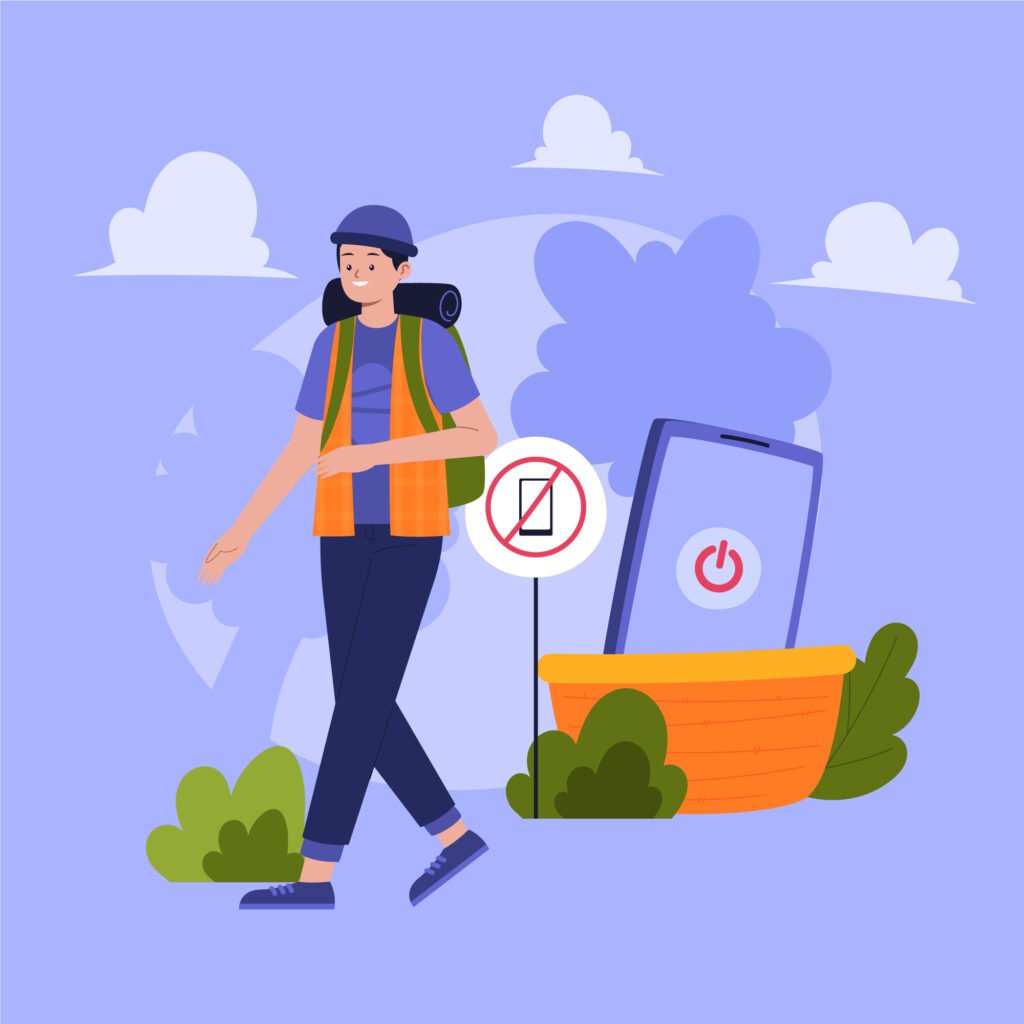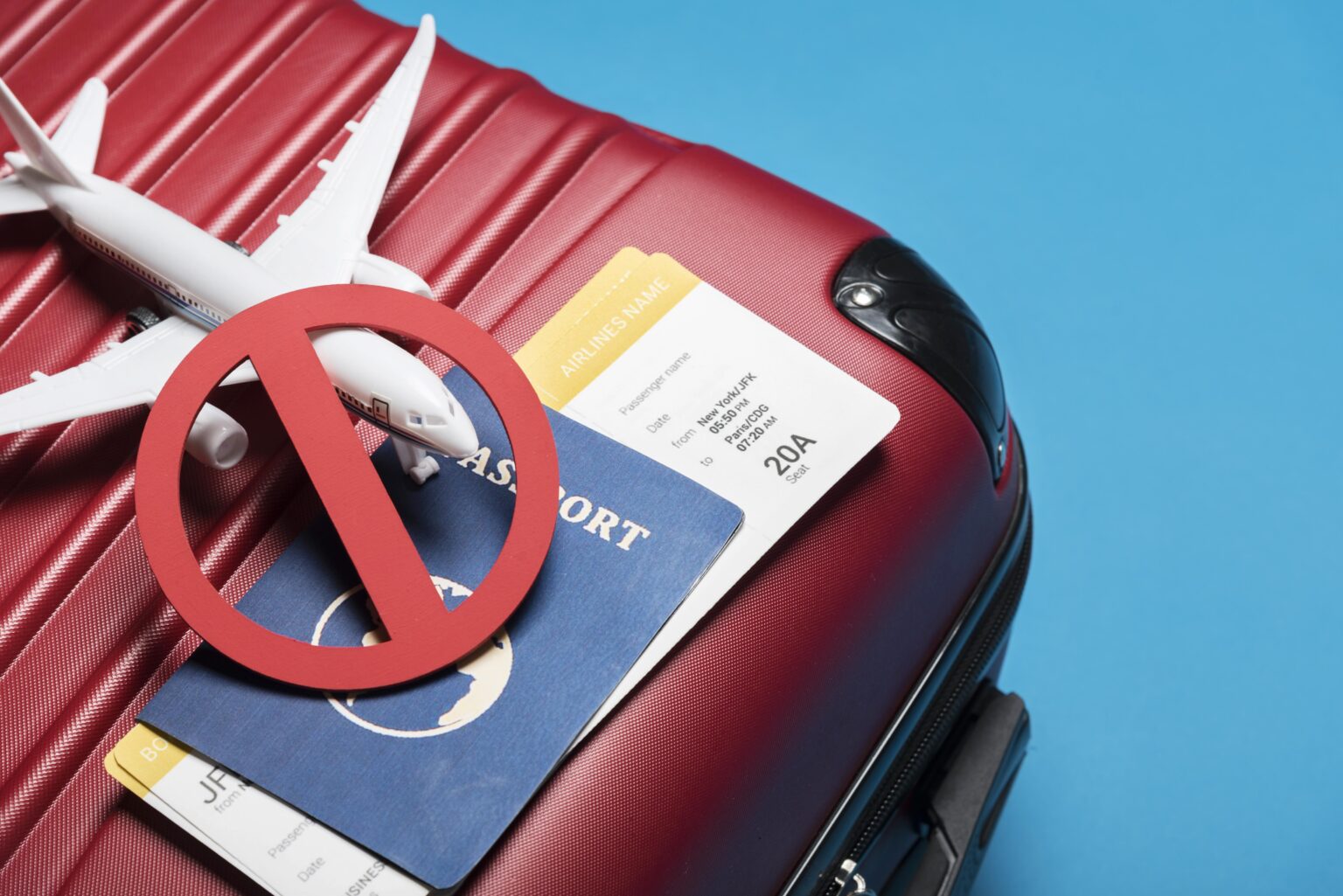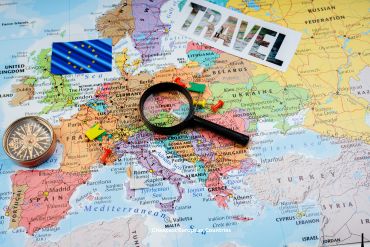Introduction
Traveling is an exciting and enriching experience that allows us to explore new cultures, places, and create lasting memories. However, it’s essential to remain vigilant and aware of common travel scams that can put a damper on your journey. Scammers often target tourists who may be unfamiliar with their surroundings, making it crucial to educate yourself about these scams to avoid falling victim to them. In this guide, we’ll discuss some of the most prevalent travel scams and provide tips on how to protect yourself and your belongings while on the road. By staying informed and cautious, you can ensure a safe and enjoyable travel experience.
Below is an overview of some common travel scams and how to avoid them:
Taxi Scams
Scam: Unscrupulous taxi drivers may take advantage of your unfamiliarity with local routes or currency. They might refuse to use the meter, take longer routes, or overcharge you.
Avoidance: Use reputable taxi services or ride-sharing apps, where fares are transparent and can be tracked. Always ask the driver to use the meter or agree on a fixed fare beforehand.
Fake Tickets and Tours
Scam: Fraudulent tour operators or ticket sellers may offer attractive deals on tours, shows, or events that don’t exist. They take your money and disappear.
Avoidance: Book tours and tickets through reputable sources, such as official websites or established travel agencies. Research reviews and ask for recommendations from fellow travelers.
ATM Skimming
Scam: Criminals install hidden devices on ATMs to capture your card information and PIN when you use the machine.
Avoidance: Use ATMs inside banks or secure locations, cover the keypad when entering your PIN, and regularly monitor your bank statements for unauthorized transactions.
Street Performer Scams
Scam: Street performers, often dressed as characters or artists, might demand exorbitant fees for photos or interactions after posing with you.
Avoidance: Clarify any charges upfront and be cautious when engaging with street performers. Politely decline if you’re uncomfortable with the terms.
Distraction Theft
Scam: Thieves work in pairs or groups to distract you, often with a map, spilled food, or a fake argument, while an accomplice steals your belongings.
Avoidance: Stay alert in crowded or touristy areas, keep your valuables secure, and be cautious if strangers approach you unexpectedly.
Overbooked or Closed Accommodations
Scam: Some unscrupulous hotels or rental property owners may claim that your reservation is canceled or overbooked and offer an alternative (usually inferior) option.
Avoidance: Always have a confirmation of your reservation handy and verify bookings directly with the accommodation provider before arrival.
Counterfeit Currency
Scam: You receive counterfeit money as change from a purchase or when exchanging currency.
Avoidance: Familiarize yourself with local currency features, exchange money at reputable banks or exchange offices, and inspect your change carefully.
Free Gift Scams
Scam: You’re offered a “free” gift or souvenir, but it turns out to be an excuse to pressure you into making a purchase or donating money.
Avoidance: Politely decline unsolicited offers and be cautious when engaging with aggressive street vendors.
The Fake Police Officer Scam
Scam: Someone claiming to be a police officer approaches you, inspects your documents, and accuses you of wrongdoing. They may demand a fine or bribe.
Avoidance: Ask for the officer’s identification, don’t hand over your passport or wallet, and offer to go to the nearest police station to resolve any issues.
The “Closed” Attractions Scam
Scam: Touts or scam artists may tell you that a popular attraction is closed for various reasons and then direct you to another location where they receive a commission.
Avoidance: Verify attraction hours and closures independently from official sources or your accommodation.
WiFi Hotspot Scams
Scam: Fraudulent WiFi networks with names similar to legitimate ones lure you in. Once connected, scammers can intercept your data.
Avoidance: Use only trusted and password-protected WiFi networks, especially for online banking and sensitive transactions.
Begging Scams
Scam: Beggers, sometimes with children, ask for money, food, or other assistance. In some cases, they may be part of an organized begging ring.
Avoidance: Be compassionate but cautious. Donate to reputable charities rather than giving money directly to individuals.
Fake Souvenirs and Art Scams
Scam: Vendors may sell counterfeit or overpriced souvenirs or claim that items are handmade when they are not.
Avoidance: Research the value of items you plan to purchase, shop at reputable stores, and be skeptical of deals that seem too good to be true.
READ ALSO: 20 Effective Ways to Beat the Heat When Traveling
“Helpful” Locals Offering Directions
Scam: Some seemingly friendly locals may offer to help you with directions but lead you to a different destination or request payment for their assistance.
Avoidance: Use maps and GPS, and politely decline help from strangers. Ask for directions from official tourist information centers or businesses.
Phony Tourist Information Centers
Scam: Fraudulent information centers may provide false information or promote specific businesses for their own gain.
Avoidance: Stick to government-run or well-known tourist information centers for accurate and unbiased information.
In addition to these scams, always be cautious with your personal information, keep photocopies of important documents, and consider using a money belt or concealed pouch to carry your valuables securely. Trust your instincts; if something feels off or too good to be true, it’s often best to err on the side of caution. By staying informed, remaining vigilant, and using common sense while traveling, you can minimize the risk of falling victim to common travel scams and ensure a safer and more enjoyable journey.
Protecting Yourself from Travel Scams

Now that you’re aware of some common travel scams, it’s essential to take proactive steps to protect yourself during your travels. Here are some valuable tips:
Research Your Destination
Before you go, research your destination thoroughly. Learn about local customs, common scams, and any safety concerns specific to the area.
Use Reputable Accommodations and Services
Book your accommodations and services through reputable sources. Read reviews from other travelers to get an idea of their experiences.
Stay Alert and Trust Your Instincts
Be aware of your surroundings and trust your instincts. If something doesn’t feel right, remove yourself from the situation.
Keep Valuables Secure
Use a money belt, hidden pouch, or anti-theft bag to keep your passport, money, and important documents safe. Leave valuable items like expensive jewelry at home.
Avoid Displaying Wealth
Dress modestly and avoid displaying signs of wealth like flashy jewelry or expensive gadgets. Blend in with the local culture as much as possible.
Separate Your Finances
Don’t carry all your money and cards in one place. Keep some cash and cards in a separate location in case of theft or loss.
Be Cautious with ATMs
Use ATMs in well-lit, secure locations, and cover your PIN when entering it. Check your bank statements regularly for any unauthorized transactions.
Use Official Transportation
Whenever possible, use official taxi services or reputable ride-sharing apps. Verify the taxi’s identity and ensure the meter is used.
Be Wary of Unsolicited Offers
Politely decline unsolicited offers, whether they’re for tours, souvenirs, or assistance. If you’re interested, research and make decisions on your own terms.
Secure Your Baggage
Use locks on your luggage and consider luggage with built-in locks. Keep an eye on your bags in crowded areas and never leave them unattended.
Stay Informed
Stay updated on local news and any safety alerts related to your destination. Register with your embassy or consulate when traveling to foreign countries.
Learn Basic Phrases
Familiarize yourself with basic phrases in the local language, such as “hello,” “thank you,” and “help.” This can be helpful for communication and may deter scammers.
Travel Insurance
Consider purchasing travel insurance that covers theft, loss, and emergencies. It provides peace of mind in case of unforeseen incidents.
Report Incidents
If you do encounter a scam or incident, report it to local authorities and your embassy or consulate. This helps prevent others from falling victim.
By following these precautions and staying vigilant, you can greatly reduce the risk of falling for common travel scams and ensure a safer and more enjoyable travel experience. Remember that while travel can be an adventure, it’s essential to prioritize your safety and well-being throughout your journey.
What to Do if You Encounter a Travel Scam
Despite your best efforts, it’s still possible to encounter a travel scam while on your journey. If you find yourself in such a situation, here are steps to follow:
Stay Calm and Composed
Keep your emotions in check. Scammers may try to provoke a reaction, so it’s essential to remain calm and collected.
Do Not Engage or Confront
Avoid confrontation with the scammer, as this can escalate the situation and potentially lead to harm.
Assess the Situation
Assess the immediate threat and determine whether you need to involve local authorities or security personnel.
Seek Help from Authorities
If you feel unsafe or have lost money or belongings, contact the local police or relevant authorities immediately. Provide a detailed account of what happened.
Document the Incident
Take notes and photographs if possible. Record descriptions of the individuals involved, their actions, and any identifying information.
Contact Your Embassy or Consulate
Inform your embassy or consulate about the incident. They can provide assistance, including guidance on how to report the scam and recover lost documents.
Cancel Stolen Cards
If your credit or debit cards are stolen or compromised, contact your bank or card issuer to report the theft and cancel the cards.
Monitor Your Finances
Keep a close eye on your bank and credit card statements for any unauthorized transactions. Report any suspicious activity to your bank.
Review Travel Insurance
If you have travel insurance, review your policy to understand what is covered and how to make a claim if necessary.
Seek Local Assistance
If you’re unsure about the legitimacy of a situation or need help, seek assistance from reputable local businesses or authorities rather than relying on strangers.
Learn from the Experience
While it’s unfortunate to encounter a scam, use the experience as an opportunity to learn and be even more vigilant during your travels.
Remember that your safety is paramount. Avoid taking unnecessary risks when dealing with scammers or uncertain situations. Prevention is the best defense, so always prioritize awareness and caution while traveling to minimize the chances of falling victim to scams in the first place.
By following these guidelines and promptly reporting any incidents, you can mitigate the impact of travel scams and continue to enjoy your journey with greater peace of mind.
READ ALSO: How to Sleep Better While Traveling: 10 Tips and Tricks
Avoid Common Travel Scams frequently asked questions
Here are some frequently asked questions about common travel scams and how to avoid them:
1. What are some common signs that I might be falling for a travel scam?
Signs of a travel scam can include high-pressure sales tactics, unsolicited assistance, sudden emergencies, overly attractive deals, and demands for immediate payment or personal information. Always trust your instincts if something feels off.
2. How can I protect my personal and financial information while traveling?
To protect your personal and financial information, use secure ATMs, avoid public Wi-Fi for sensitive transactions, keep important documents in a secure location, use a money belt or concealed pouch, and be cautious about sharing personal details with strangers.
3. Are all street vendors and street performers scammers?
No, not all street vendors and performers are scammers. Many are legitimate and offer valuable goods or entertainment. However, it’s essential to exercise caution, negotiate prices if needed, and be aware of potential scams.
4. What should I do if I encounter aggressive street vendors or scammers?
Politely but firmly decline their offers and continue walking. Avoid engaging in arguments or confrontations, as this can escalate the situation. Seek assistance from local authorities if necessary.
5. Is travel insurance worth it, and does it cover scams?
Travel insurance is often worth it as it can provide coverage for a range of unforeseen incidents, including theft and trip cancellations. However, the coverage can vary, so carefully review your policy to understand what is covered and how to make a claim.
6. Should I trust information from locals offering assistance with directions or recommendations?
While many locals genuinely want to help, it’s essential to be cautious. Verify information independently or ask for recommendations from trusted sources like your accommodation or official tourist information centers.
7. How can I verify the legitimacy of tour operators or ticket sellers?
Research tour operators and ticket sellers online, read reviews from other travelers, and check their official websites or contact information. Reputable companies typically have a physical address and customer service.
8. Are there any specific scams I should be aware of in certain regions or countries?
Scams can vary by location, so it’s crucial to research common scams specific to your destination before you go. Local travel forums and guides can provide valuable insights.
9. What should I do if I suspect I’ve fallen for a scam while traveling?
Stay calm, document the incident, contact local authorities, inform your embassy or consulate, and take steps to protect your finances (e.g., canceling stolen cards). Learning from the experience can also help prevent future scams.
10. How can I report a scam or unethical business while traveling?
Report scams to local authorities or the police and seek assistance from your embassy or consulate. You can also share your experience on travel forums or with travel advisory organizations to help other travelers.
These frequently asked questions provide valuable insights into how to protect yourself from common travel scams and how to respond if you encounter suspicious situations while exploring new destinations. Staying informed and vigilant is key to having a safe and enjoyable travel experience.
Conclusion
In conclusion, while travel offers countless opportunities for adventure and exploration, it’s essential to be aware of common travel scams and take steps to protect yourself. By staying informed about the various scams that can occur, you can significantly reduce the risk of falling victim to them. Remember to:
- Research your destination thoroughly before your trip.
- Use reputable services for accommodations, transportation, and tours.
- Stay alert and trust your instincts when encountering unfamiliar situations.
- Keep your valuables secure and separate your finances.
- Be cautious with ATMs and public Wi-Fi networks.
- Politely decline unsolicited offers and assistance from strangers.
- Report any incidents to local authorities and your embassy or consulate.
By following these guidelines, you can minimize the chances of encountering travel scams and ensure a safer and more enjoyable journey. Traveling with awareness and preparedness allows you to focus on the incredible experiences and memories that await you in your destination.
In other related article, Payment Methods for Travel: What Is The Best Way To Pay For Things When Traveling Abroad?







